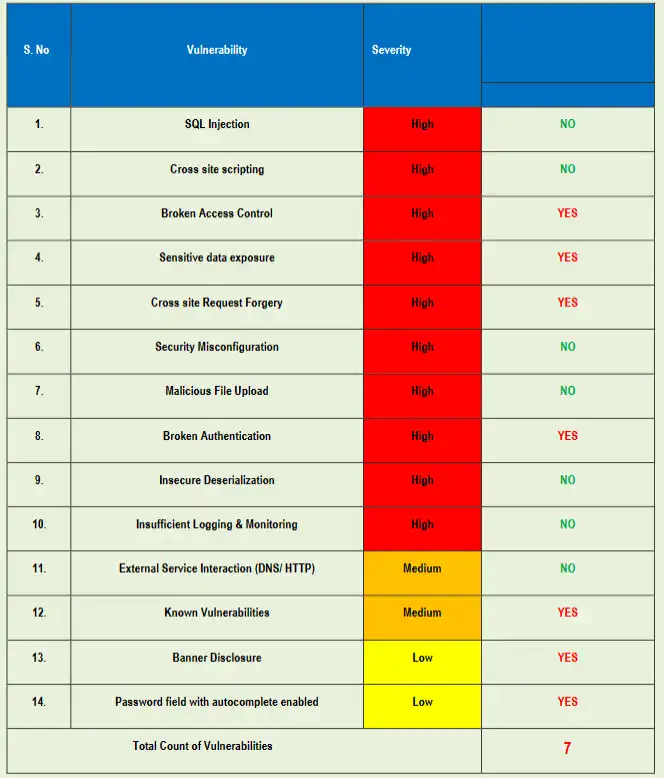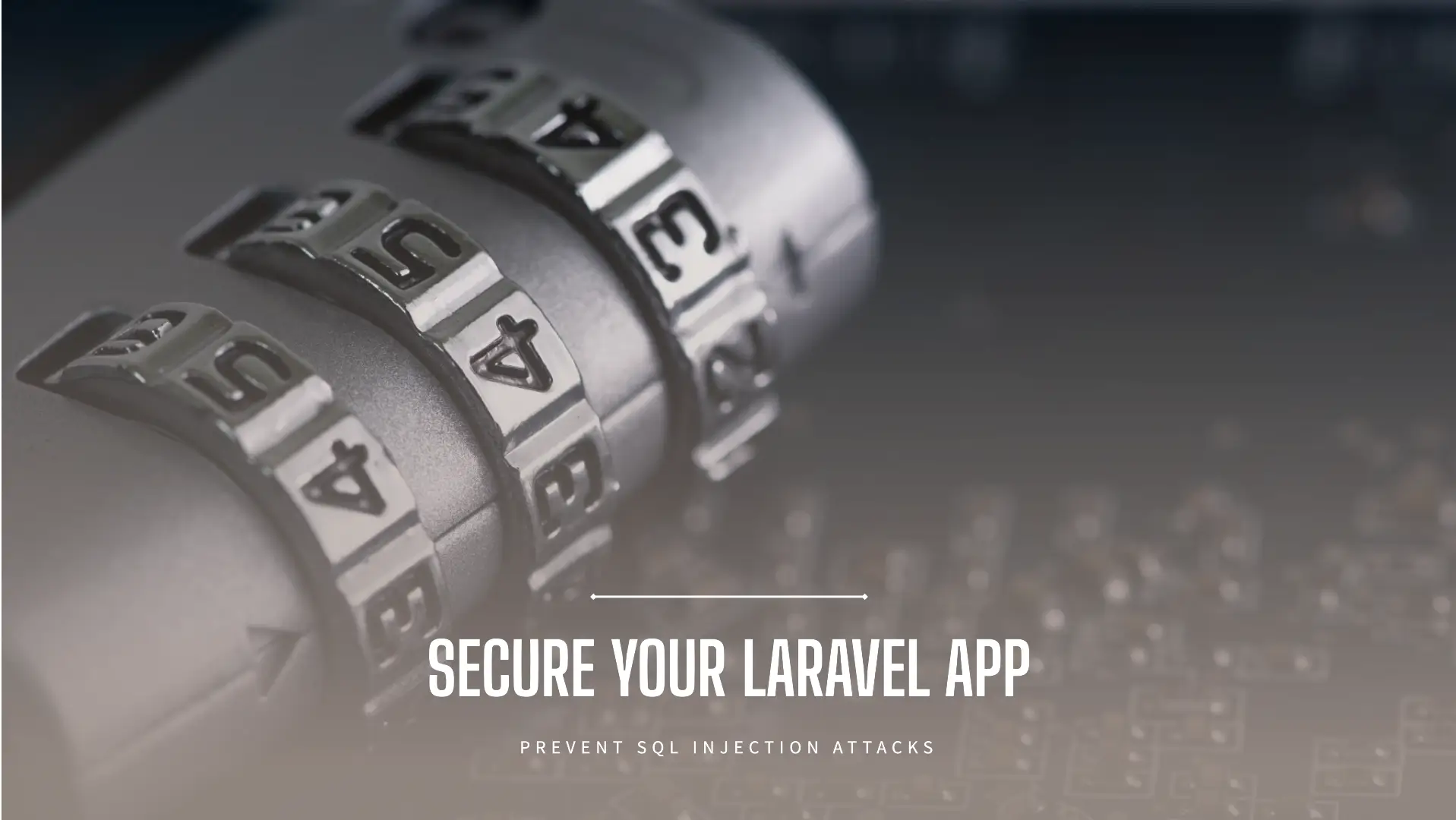🚨 Top 10 Ways to Prevent Insecure Deserialization in Laravel
What is Insecure Deserialization in Laravel?
Insecure Deserialization in Laravel is a critical vulnerability that allows an attacker to inject malicious serialized objects into the application’s logic. Laravel, a popular PHP framework, uses serialization for session handling, caching, and queues. If not handled securely, it can lead to Remote Code Execution (RCE), privilege escalation, or data tampering.
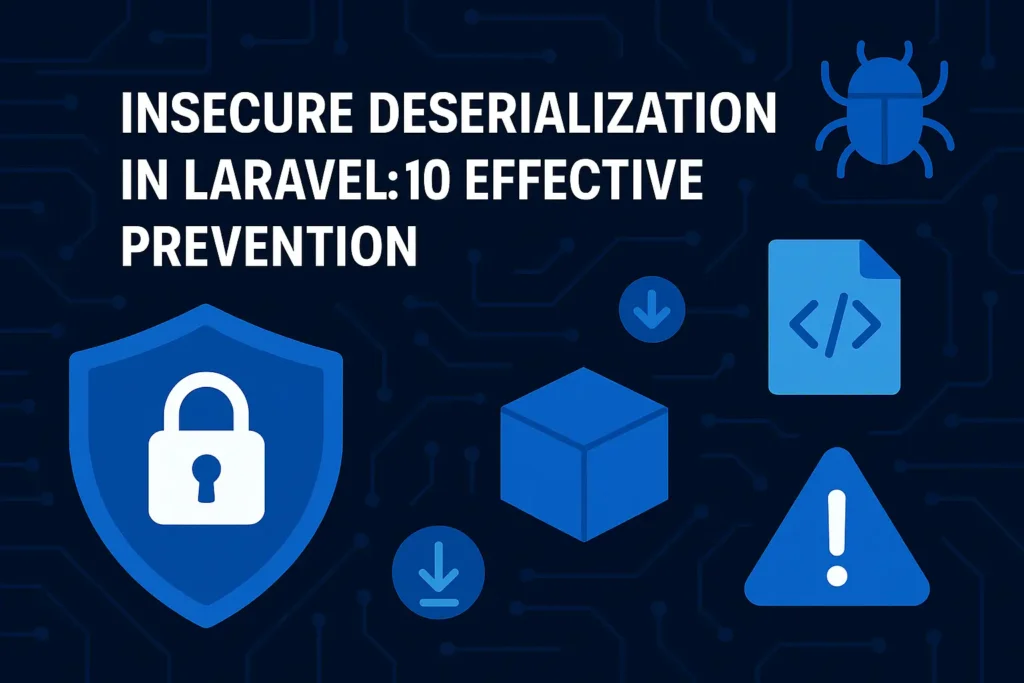
This vulnerability occurs when:
- Laravel unserializes untrusted data
- The application does not validate the type or source of serialized input
- Attackers exploit object injection through PHP’s
unserialize()function
⚠️ Why You Should Worry About Insecure Deserialization in Laravel
If you’re using Laravel and rely on session data, caching systems, or queues that handle serialized data, you are potentially at risk of Insecure Deserialization in Laravel. Attackers can manipulate object data to gain unauthorized control of your application.
🔍 How Does Insecure Deserialization Happen?
Let’s understand it with an insecure example:
❌ Vulnerable Laravel Controller
public function loadData(Request $request)
{
$data = $request->input('payload');
$object = unserialize($data); // ⚠️ Vulnerable
return $object->run();
}Attackers can send a malicious serialized payload like:
O:8:"EvilClass":1:{s:4:"code";s:15:"system('rm -rf /');";}This payload might invoke code execution if the EvilClass contains a __wakeup() or __destruct() method that runs the $code.
✅ Safe Coding Practices in Laravel
1. Avoid Using unserialize() on Untrusted Data
$data = $request->input('payload');
// ❌ Don't do this
// $object = unserialize($data);
// ✅ Use JSON or Laravel's own serialization with type control
$safeData = json_decode($data, true);2. Use Laravel’s Serialization System Securely
Laravel offers serialize() and unserialize() helpers with base64 encoding.
$serialized = serialize($userObject);
$encoded = base64_encode($serialized);
// When decoding
$decoded = base64_decode($encoded);
$safeObject = unserialize($decoded, ['allowed_classes' => ['App\Models\User']]);🔒 Real-World Examples and Fixes
Example 1: Fixing Queue Job Serialization
Laravel queues serialize job classes. Use shouldBeEncrypted or __sleep() properly.
class SendEmailJob implements ShouldQueue
{
public $email;
public function __construct($email)
{
$this->email = encrypt($email); // Secure the property
}
public function handle()
{
$email = decrypt($this->email);
Mail::to($email)->send(new WelcomeMail());
}
}Example 2: Avoid __destruct() in Models
class DangerousClass
{
public $command;
public function __destruct()
{
eval($this->command); // DO NOT use eval
}
}Replace with safe logging or notification patterns instead.
📸 See Our Free Tool in Action
📷 Screenshot of the Website Vulnerability Scanner
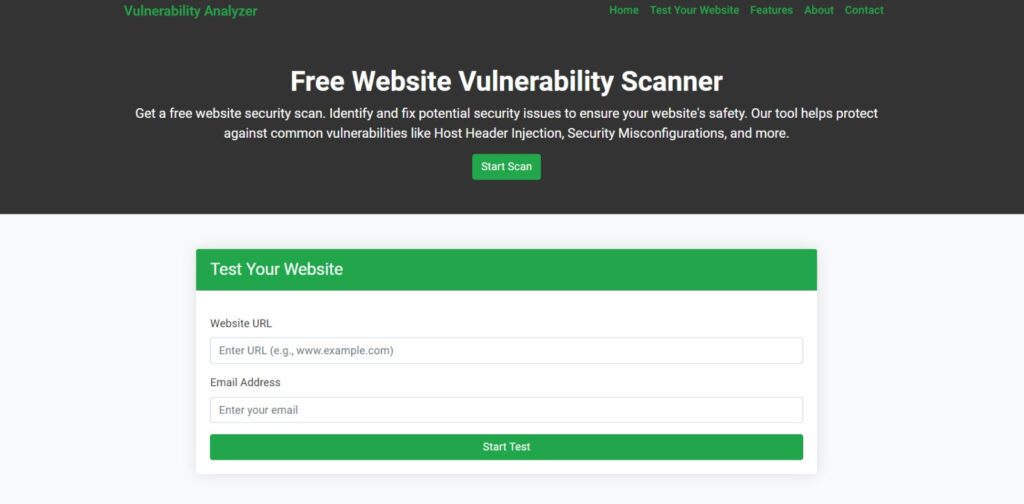
Want to check if your site is vulnerable to Insecure Deserialization in Laravel? Use our free tool to check Website Security.
📷 Screenshot of an assessment report run using our free tool to check Website Vulnerability
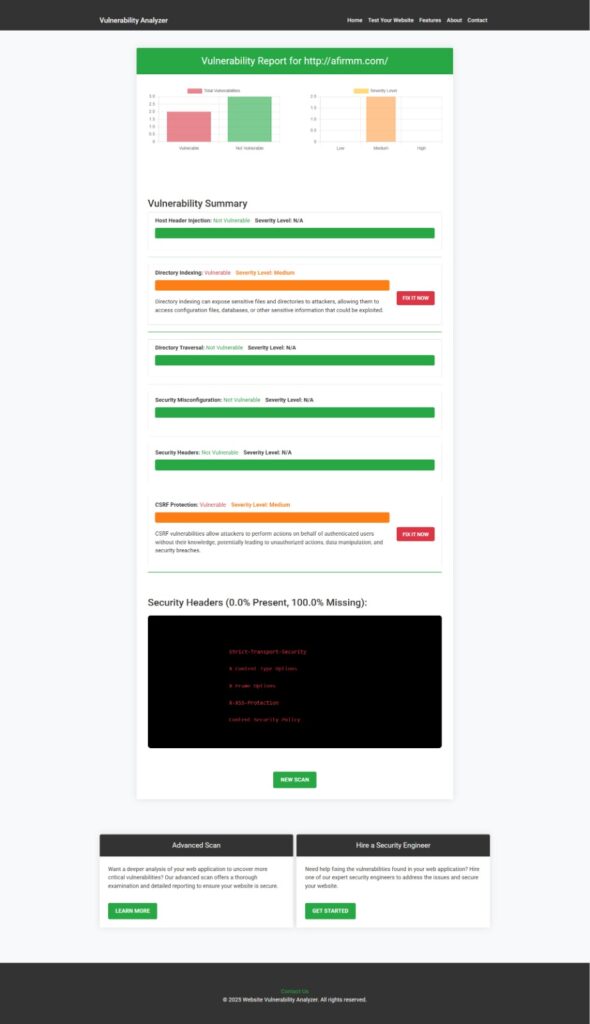
This is an example of an actual report generated after detecting insecure deserialization and other security issues.
🔗 Explore Related Topics
We’ve written extensively on other Laravel and React.js vulnerabilities. Check out:
- Stop Session Fixation in Laravel
- HTTP Response Splitting in Laravel
- Unrestricted File Upload in React.js
- Weak SSL/TLS Configuration in Laravel
- Handle Disapproved Ads Due to Compromised Sites
🔐 Our Laravel Security Services
If you’re serious about application security, let the experts at PentestTesting help. Our Web App Penetration Testing Services can identify and patch vulnerabilities like:
- Insecure Deserialization in Laravel
- SQL Injection
- Session Fixation
- Cross-Site Scripting (XSS)
- Misconfigured Headers
- And much more!
Highlights of our service:
- Comprehensive vulnerability scanning
- Manual testing by security experts
- Easy-to-read reports
- Fix recommendations
- Re-test included
✅ Summary: Stay Secure with Laravel
Here are 10 solid practices to avoid Insecure Deserialization in Laravel:
- Never use
unserialize()on untrusted input - Use
json_decode()for safe data parsing - Whitelist classes during deserialization
- Sanitize all serialized input
- Avoid
eval(),__wakeup(), and__destruct()for critical logic - Use Laravel’s encryption helpers
- Harden session management
- Validate inputs before queue deserialization
- Disable PHP object deserialization from outside sources
- Run periodic penetration testing
✍️ Final Thoughts
Insecure Deserialization in Laravel is a severe but preventable threat. With proper coding practices, validation techniques, and regular security audits, your Laravel applications can stay secure from this vulnerability.
Don’t wait for attackers to exploit your code—secure your Laravel apps now!
If you’d like to help secure your Laravel application from insecure deserialization and more, contact us for a consultation.
